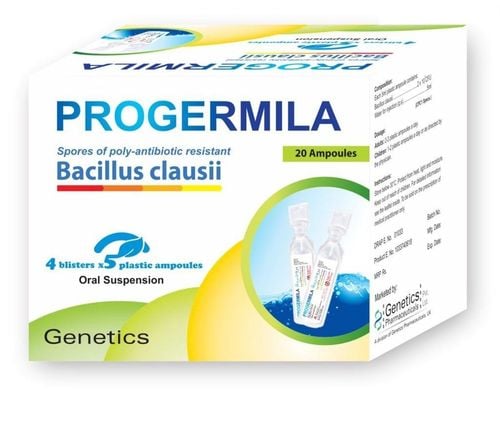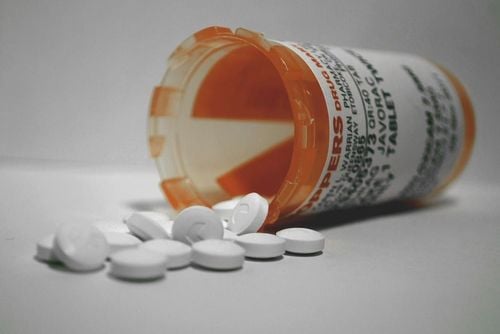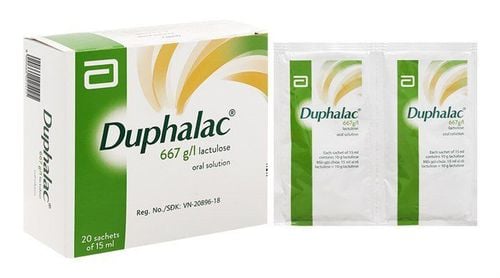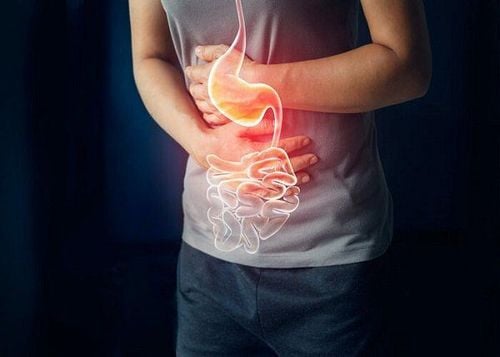This is an automatically translated article.
What is intestinal dysbacteriosis? Baby has long-term intestinal dysbacteriosis what to do? What are the symptoms of intestinal dysbacteriosis in adults... are the issues that will be answered in the following article.
1. What is intestinal dysbacteriosis?
The digestive system is home to a complex microbiome. It varies from person to person, depending on genetics and environment. The gut contains trillions of bacteria. Under healthy body conditions, the microbiome has more than 500 species. Good bacteria accounted for 85% and harmful bacteria accounted for 15%.
There is no inflammation in the presence of harmful bacteria because of the immune regulation mechanism in the intestine. Immune cells here make up 80% of the body. Therefore, the microbiota in the gut is very important to the immune system.
Intestinal dysbacteriosis is a condition in which harmful bacteria increase beyond normal. This condition can cause:
Vitamin deficiency; Reduced fat absorption; Lack of nutrition. Intestinal dysbacteriosis can occur in all subjects and ages.
2. Causes of intestinal dysbacteriosis
There are many different causes of intestinal dysbiosis. Specifically:
2.1. Causes of intestinal dysbacteriosis in children
Intestinal dysbacteriosis can occur at any age, but children have a higher incidence. Causes of intestinal dysbacteriosis in children are:
Nutrition; Long-term antibiotic use. Intestinal dysbacteriosis in children is dangerous if not effectively treated.
2.2. Causes of intestinal dysbacteriosis in adults
Intestinal dysbacteriosis in adults can be caused by some of the following reasons:
Unhygienic diet; Abuse of alcohol/beer; Have had stomach surgery; Abnormal structure in the intestinal tract; Radiotherapy; Diverticulitis ; Intestinal adhesion. The cause of intestinal dysbiosis is multifactorial. Identifying the cause is also helpful in finding an effective cure.
3. Symptoms of intestinal dysbacteriosis
Intestinal dysbiosis has different symptoms in children and adults. Specifically:
Manifestations of intestinal dysbiosis in children include:
Anorexia; Quit breastfeeding; Vomiting; Distention; Stomachache ; Diarrhea; Constipation; Weak immunity; Vulnerable to infection. If the child has this symptom, parents need to monitor and take the child to the doctor for an effective treatment.
Intestinal dysbiosis in adults with manifestations include:
Diarrhea; Constipation ; Flatulence; Stomachache; Nausea; Vomit. In adults, if 2 of the above symptoms are present, it is considered intestinal dysbiosis.
4. Why does intestinal dysbiosis often last?
What is intestinal dysbacteriosis? As mentioned above, intestinal dysbiosis is an imbalance of microflora in the intestinal tract and it includes many different causes. It is worth mentioning that there are many people with prolonged intestinal dysbacteriosis. So, why does intestinal dysbiosis often last?
The cause is intestinal dysbacteriosis, which mainly comes from eating and living habits. If you have had it once, but you can't change these habits, that is the cause of the long and persistent condition.
Intestinal dysbacteriosis tends to occur in children more because children have weak immune systems and are susceptible to infections. Moreover, some parents have a habit of giving their children weaning foods early and improperly... making children more susceptible to intestinal microbial disorders.
In addition, children often have bacterial infections, have to take antibiotics for a long time, this is also the reason why they have long-lasting intestinal disorders.
5. Diet for children with prolonged intestinal dysbacteriosis
Long-lasting dysbacteriosis may stem from eating habits. Therefore, when the baby has a prolonged intestinal dysbacteriosis, you need to pay attention to supplementing foods containing:
B complex vitamins; Calcium; Magnesium; Beta-carotene; Zinc. In addition, it is necessary to add to the baby's menu foods including:
Dark green vegetables; Fish (anise/collect,...); Fresh Meat; Corn; Oat. You can also add probiotics. This is also a way to balance the intestinal microflora.
Thus, long-term intestinal dysbacteriosis is often caused by many different causes, and intestinal flora disorders, whether in children or adults, are also dangerous. Therefore, it is necessary to pay attention to follow-up for early detection of intestinal dysbacteriosis and early treatment.
Please dial HOTLINE for more information or register for an appointment HERE. Download MyVinmec app to make appointments faster and to manage your bookings easily.













